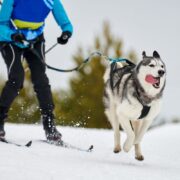I’ve got a little dog, but he’s not little in his own mind! I often laugh at him and tell him he’s got a Napoleon complex. He seems to think he can take on any other animals for sure, including large dogs.
His confidence is inspiring, but it can also inspire some very bad behaviors. Is this small dog syndrome? Let’s take a look and see.
What is the Napoleon Syndrome in Dogs?
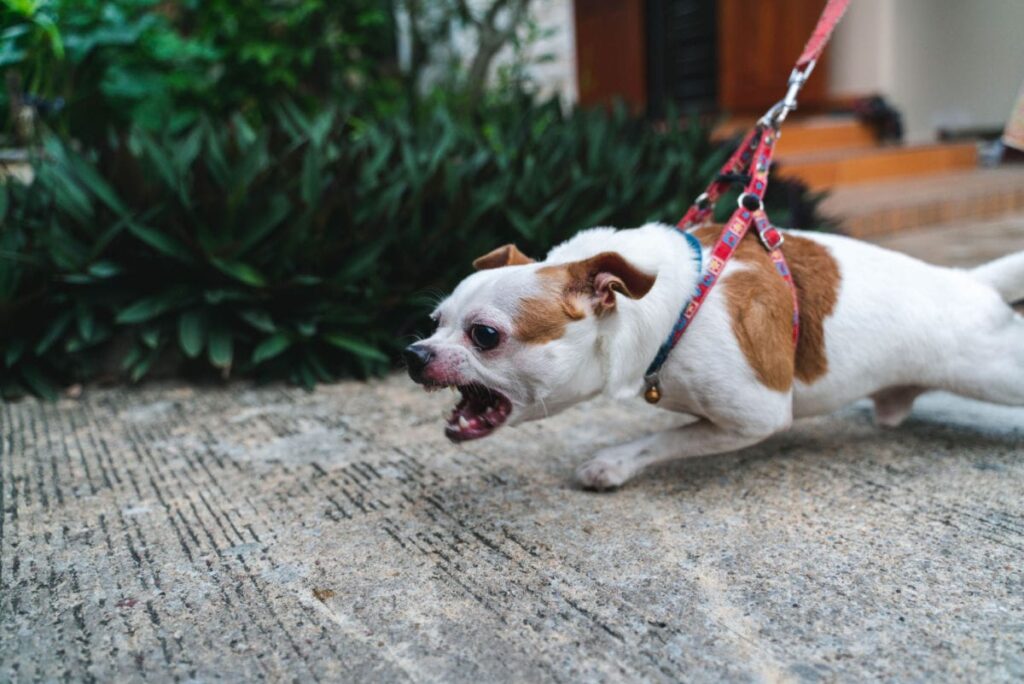
Small doggies, like my little guy, usually have big personalities, but when does that big personality become a syndrome? Small breed dogs like Chihuahuas, Dachshunds, and Yorkies often get away with behavioral problems that you wouldn’t let a larger dog, like a German shepherd or a Rottweiler, get away with.
When I was working as a veterinary technician, it was always the small dogs that would growl and nip at people and other animals.
That type of aggression is not acceptable, and it’s not cute. In fact, it can lead to big problems.
Additionally, your little dog can develop an attitude problem with you because he thinks he’s the boss. This can lead to nipping, whining, and other bad behavior that can drive pet parents mad! Moreover, your pooch might refuse to obey basic commands because he doesn’t recognize that you’re the big dog in your pack.
The paradox of small dog breeds who aspire to take over the pack has led some professionals like dog trainers and veterinarians to refer to this problem as the Napoleon Syndrome or the Napoleon Complex.
It’s named after the French emperor Napoleon Bonaparte, whose small stature may have been the true motivation behind many of his successful military campaigns. Likewise, your little guy may be looking for a little respect.
Behaviors Associated with Small Dog Syndrome
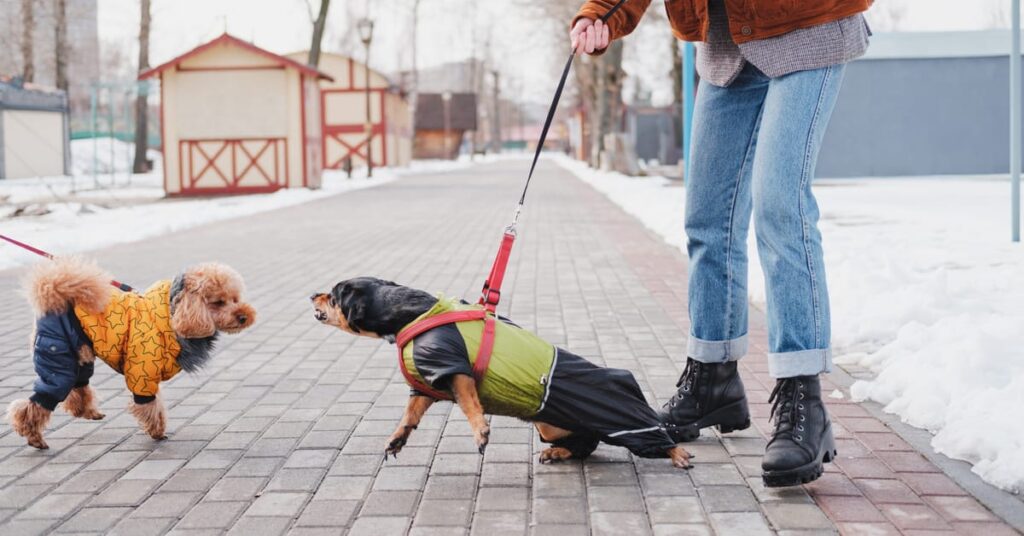
When a small dog is allowed to do as he pleases, he can come to rule the roost over his people and the other animals in the household. While there is no genetic basis for this syndrome, and it’s not a scientific term, it is a phenomenon that is seen in small breeds.
It results in some typical dog behavior that is problematic. Some of the bad behaviors are:
- Refusing to listen
- Refusal to follow basic commands
- Aggression that includes nipping/biting
- Growling at people and other pets
- Pushing through doors ahead of their pet parents
- Refusing to walk on the leash
- Whining for things they want
- Begging for food
- Jumping on or over people when not invited
- Getting on furniture when not asked
These behaviors are not the result of any physical problem; rather, they result from small dog owners who are overly permissive. Instead of redirecting their pooch’s bad behavior to something more desirable, they may excuse it as “adorable.”
Small dogs with these problems can get away with them much more often than a bigger dog would be able to do. So what should you do about the problem since you don’t have an army to go up against your little Napoleon?
How Do You Correct These Bad Behaviors?
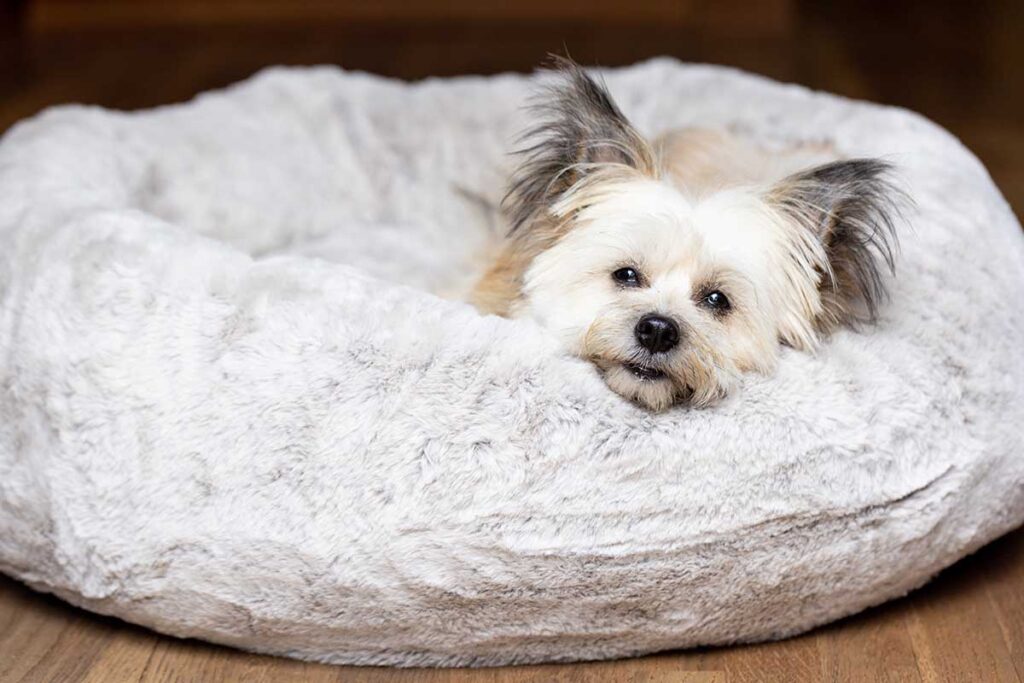
Correcting these bad behaviors will take some work, particularly if your little dictator has already been getting away with them. You might want to consult with your veterinarian about recommending a professional dog trainer to help with the problem, but in general, there are some things you can do to nip these bad manners in the bud.
- Positive reinforcement rules the day — As you engage in these tips for training your little authoritarian to behave, remember that positive reinforcement does way more good than negative reinforcement. You really do catch more flies with honey than with vinegar. Praise your dog and give him rewards when he does what you ask. He’ll be healthier and happier as a result.
- Treat your little guy like the dog he truly is — Coddling your pooch is one way he learns that he can get away with things other bigger dogs can’t. If you carry him around with you, stop doing that. If you’re excusing his bad behavior because he’s so cute, it’s time to let him know it’s not acceptable. In other words, treat your little Napoleon like just another soldier.
- Make him walk on the leash — Leash walking helps your small dog understand that you are the leader and helps make him more confident. It’s very easy to just pick these little guys up instead of making them walk on the leash, but when you stop doing that, they actually feel safe because they learn to follow your lead. You also want to teach your pooch to walk properly on a leash. Don’t let him lunge at other dogs or people, and don’t let him pull on the leash. Teaching him to stay with you establishes your role as the leader, and it helps keep him safe from other dogs, which increases his confidence. It also makes going to the park a much more pleasant experience.
- It’s time for small dog training classes — Often, these kinds of aggressive behaviors happen because your pooch hasn’t received proper training or proper socialization. I can’t emphasize enough how important these are for good dog behavior. They should learn the basic commands, like ‘sit,’ ‘stay,’ ‘drop it,’ and ‘down.’ They also need to learn where to potty if they are marking their territory around the house. Learning these basic manners builds a foundation of trust between you and your best friend, and it prevents unwanted behaviors like those that occur with little dog syndrome.
- Rule your own roost — It’s important for all of your dogs to understand that you are the alpha male or female in the pack. Your dog should respect your authority because if they don’t, they will misbehave. So don’t let them jump up on you or other people or furniture without being invited to do so. Once you establish that you are the alpha of your little dog pack, they can enjoy privileges without taking them, or you, for granted.
- Begging gets him nowhere — It’s also important not to encourage your dog to beg by giving into those pleading eyes. If you give in to him when he begs, you teach him that he can effectively manipulate you. Giving him treats from time to time is fine, but it has to be on your terms. Remember, he won’t just beg you, he’ll beg everyone that comes to your house. That’s annoying and can lead to worse behaviors like growling and jumping up on people.
Final Thoughts
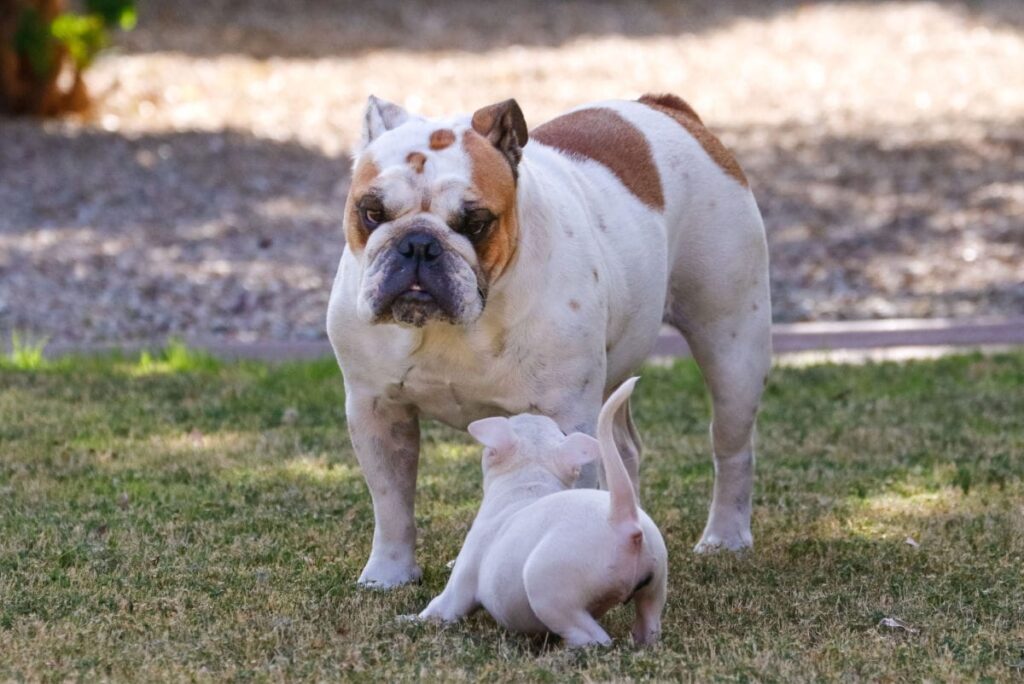
I love my little guy, and I often tell him that he’s only still alive because he’s so cute. Seriously, I have to work to ensure he doesn’t develop a Napoleon complex. It’s hard to resist his cute little face, but I know that it’s better for both of us if he learns good manners.
You don’t want your little guy to nip someone or even threaten to do so. You also don’t want him jumping up on people without their permission, fighting with other animals, or using those adorable little facial expressions as a manipulative tool.
These are all bad behaviors that can get him into trouble. By teaching him that he has to be a good dog, you can help your little Napoleon avoid his very own Waterloo!
